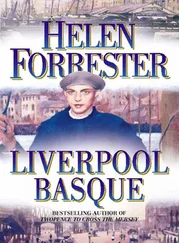James Forrester - The Roots of Betrayal
Здесь есть возможность читать онлайн «James Forrester - The Roots of Betrayal» весь текст электронной книги совершенно бесплатно (целиком полную версию без сокращений). В некоторых случаях можно слушать аудио, скачать через торрент в формате fb2 и присутствует краткое содержание. Жанр: Исторический детектив, на английском языке. Описание произведения, (предисловие) а так же отзывы посетителей доступны на портале библиотеки ЛибКат.
- Название:The Roots of Betrayal
- Автор:
- Жанр:
- Год:неизвестен
- ISBN:нет данных
- Рейтинг книги:5 / 5. Голосов: 1
-
Избранное:Добавить в избранное
- Отзывы:
-
Ваша оценка:
- 100
- 1
- 2
- 3
- 4
- 5
The Roots of Betrayal: краткое содержание, описание и аннотация
Предлагаем к чтению аннотацию, описание, краткое содержание или предисловие (зависит от того, что написал сам автор книги «The Roots of Betrayal»). Если вы не нашли необходимую информацию о книге — напишите в комментариях, мы постараемся отыскать её.
The Roots of Betrayal — читать онлайн бесплатно полную книгу (весь текст) целиком
Ниже представлен текст книги, разбитый по страницам. Система сохранения места последней прочитанной страницы, позволяет с удобством читать онлайн бесплатно книгу «The Roots of Betrayal», без необходимости каждый раз заново искать на чём Вы остановились. Поставьте закладку, и сможете в любой момент перейти на страницу, на которой закончили чтение.
Интервал:
Закладка:
He picked up the paper. It was sealed with Clarenceux’s seal. He knew he would see his own name written on the front even before his eyes actually recognized the words. He broke open the seal and read Clarenceux’s message.
Right worshipful friend and kinsman, if you do genuinely desire that we be reconciled, and that all threats between us be as words in the wind, go to London Bridge and find the jeweler who goes by the name of Robert Rokeby this same afternoon, before six of the clock. His shop is near the center of the bridge. Follow his instructions and you will find me. Come alone, and you will be met kindly, in friendship.
Cecil abruptly turned and walked out of the hall, running down the stairs to the front door. “Call the others,” he snapped to the guards. “We are going to London Bridge.”
Cecil did not speak all the way. Walking fast, with the guards following him, he pushed past merchants and tradesmen without a thought, thinking of how he was going to deal with Clarenceux. Turning down alleys, he did not care for the state of his shoes as he splashed through the mud. He strode past the wardens on London Bridge, to a point about one third of the way across. There were several jewelers’ shops here. “Find Rokeby,” Cecil said to the guards with him. “His shop is somewhere near the middle.”
Cecil hated being the subject of attention from the passersby. Those who knew who he was simply gawped at him standing in the middle of the street in public. Those who did not wondered who he was. Cecil felt their eyes pry into him and wished one of his men would find the shop quickly. He looked up at the houses overlooking the bridge; there were even two female servants looking out of an upstairs window at him. He turned around and pretended not to notice. There was a rumble of thunder in the distance. It would start to rain soon.
“Sir William,” said one of the guards, “Rokeby’s shop is that one, with the shutters closed.”
Cecil walked to the door. It was oak, old, and ill fitting, but locked securely. An external padlock fitting was not in use. “Damn it, search the place. If Clarenceux is in there, bring him out.”
Two guards stepped up to the door. One knocked hard with a knife hilt. There was a pause, which irritated Cecil even more. These houses on the bridge were small-fourteen feet in total length-so even if Rokeby had been upstairs, he should have been there promptly. Cecil gestured to the guard who had spoken to him. “Call his name.”
“Rokeby!” the guard called.
The door opened.
“Are you Robert Rokeby?” demanded Cecil, stepping forward.
Rokeby was a short, gray-eyed man of about sixty, clean shaven, with a narrow face and almost bald head. “I am. And you must be Sir William Cecil. Godspeed to you, Sir William.”
“Where is Clarenceux?”
“You will have to come in if you want to-”
“By God’s blood, man, tell me. I have lost my patience and you will lose your life if I have to play any more games. Tell me, here and now!”
The man was terrified. “I cannot, Sir William. Mr. Clarenceux told me I had to show you.”
“Then damn well show me. Show all of us.”
Rokeby pushed his door as far open as it would go and Cecil gestured for his men to follow him in. “No, no, you cannot all come in,” spluttered the jeweler. “If I am to show you, I must lift the trapdoor.”
Cecil was standing in a tiny shop, barely six feet deep by seven feet wide, made smaller by the cupboards fastened against the walls and the workbench. There was only room for four men to stand in there, besides Rokeby. The jeweler himself was standing in a narrow doorway that led to a back room. “What trapdoor?” Cecil asked.
“This one. It is the way Mr. Clarenceux told me to tell you to go.”
Cecil stepped forward. Set in the middle of the floor of the back room was a trapdoor, about two feet square. Rokeby opened it and Cecil looked down. About thirty feet below was the base of one of the pillars of the bridge, with a large flat cutwater-called a starling-visible above the waterline. The water churned around the stone of the starling. He looked hard at Rokeby. “Is this a joke?”
Rokeby gestured upward. Above the trapdoor hung a rope ladder. He reached up and pulled on a cord and the rope ladder unfurled itself, tumbling through the trapdoor and trailing into the water below. “It is my escape way, in case of fire. Mr. Clarenceux asked me to show it to you. He said he doesn’t want anyone to follow you.”
Cecil looked behind him at the men in the doorway. He said nothing. He looked again at the river below, its brown water twisting around the starlings. The starlings themselves were platforms of rubble shaped like sharp-nosed boats. They projected out either side of the bridge and caught small branches drifting downstream. Cecil now understood why Clarenceux had been so specific about the times; at high tide this platform would be completely covered. As it was, the tide was coming in, and boats were able to sail upstream and downstream. At low tide, this point would become almost impossible for vessels traveling in either direction. The arrangements had been sophisticated. He could no longer hide behind his men. From now on, he would have to go on alone or not go on at all.
“What happens down there?”
“A man will meet you. He has room in his boat only for one, or so Mr. Clarenceux said. If you step into that boat alone and go with him, Mr. Clarenceux will come to you. That is all he told me and all I can tell you.”
Cecil looked from the trapdoor to Rokeby. “You are going to be in trouble, for helping a criminal. You know that.” He turned to his men. “Go to the banks, find boats, commandeer them, and follow me. Remain discreet-don’t make Clarenceux aware of your presence unless you see a struggle.”
Rokeby watched as the queen’s Secretary leaned forward and tested the strength of the rope ladder. Hesitant at first, Cecil suddenly stepped onto it and swung, his feet striking the side of the trapdoor. Then he began to climb down toward the water.
He looked up at the beams of the houses, cantilevered seven feet out over the edge of the bridge. He had seen them from the river before but never from this angle, this close. A bird flew out from the shadows. As he took another step, and another, the rope ladder swayed, but soon he was down on the stones of the starling. He looked downstream, then upstream. No one seemed to be coming for him. He saw the rope ladder move, pulled up-presumably by Rokeby. “Leave it,” he commanded. Rokeby did as he was told. Cecil stood on the starling and waited for a boat to approach.
“Sir William,” said a voice behind him. “This side.”
Cecil cautiously turned. A stout man in his fifties with a hat and an unkempt gray beard was there. He nodded for Cecil to come the other side of the great pillar supporting the bridge that arose from the center of the starling. Cecil walked across the uneven surface toward the man. When he came within a pace, he stopped. The man smelled of a tanyard.
“Who are you?” asked Cecil.
The man said nothing. He stepped forward, so he was within an arm’s length of Cecil. “I am directed to check you for weapons, Sir William.”
Sir William shook his head. “How dare you?” But after waiting a moment, he slowly opened his cloak and let the man-a pelterer who had recently unloaded a cartload of skins-feel his doublet for a pistol or knife.
“This way.” The pelterer led Cecil around the other side of the pillar to a wherry moored against the side of the starling. Cecil got in. The pelterer arranged the oars, pushed off, and started to row upstream. Cecil checked the boats along the banks; he caught a glimpse of two of his men running along the quay, trying to find a suitable craft in which to follow him. The others he could not see anywhere.
Читать дальшеИнтервал:
Закладка:
Похожие книги на «The Roots of Betrayal»
Представляем Вашему вниманию похожие книги на «The Roots of Betrayal» списком для выбора. Мы отобрали схожую по названию и смыслу литературу в надежде предоставить читателям больше вариантов отыскать новые, интересные, ещё непрочитанные произведения.
Обсуждение, отзывы о книге «The Roots of Betrayal» и просто собственные мнения читателей. Оставьте ваши комментарии, напишите, что Вы думаете о произведении, его смысле или главных героях. Укажите что конкретно понравилось, а что нет, и почему Вы так считаете.












